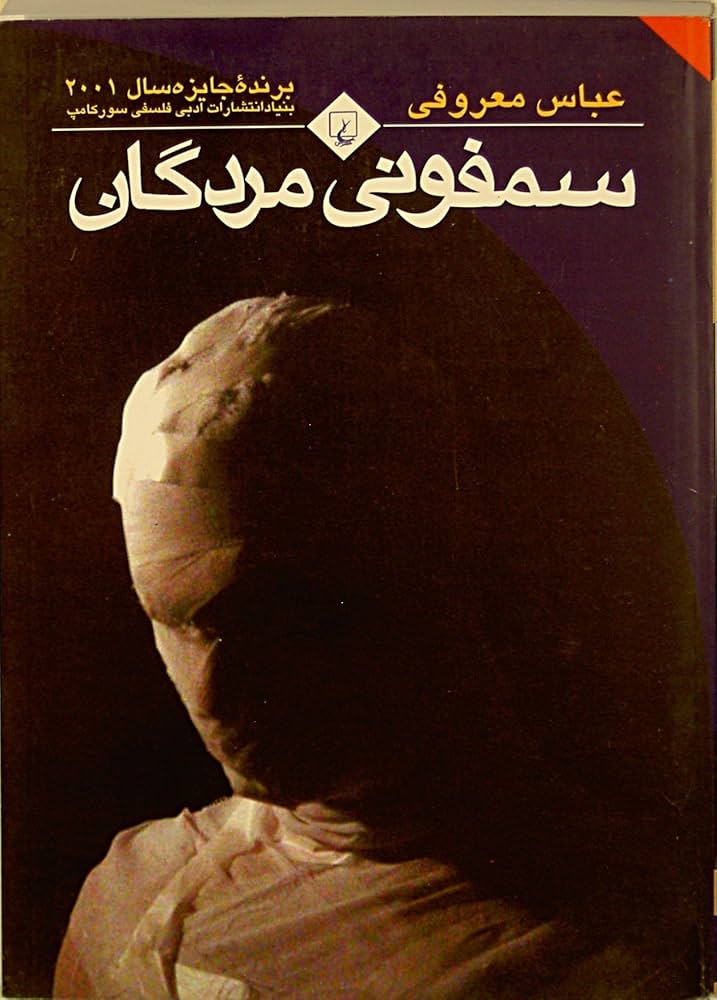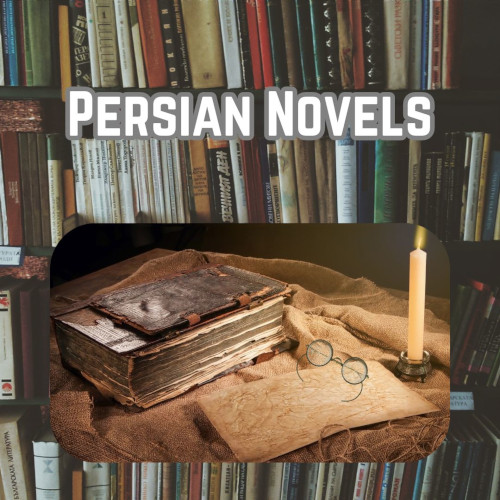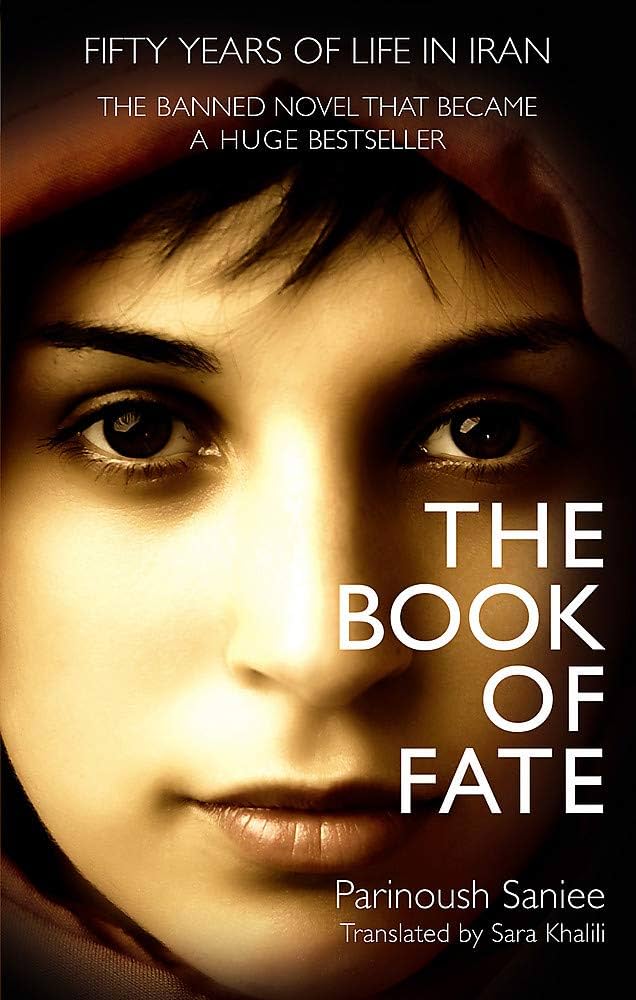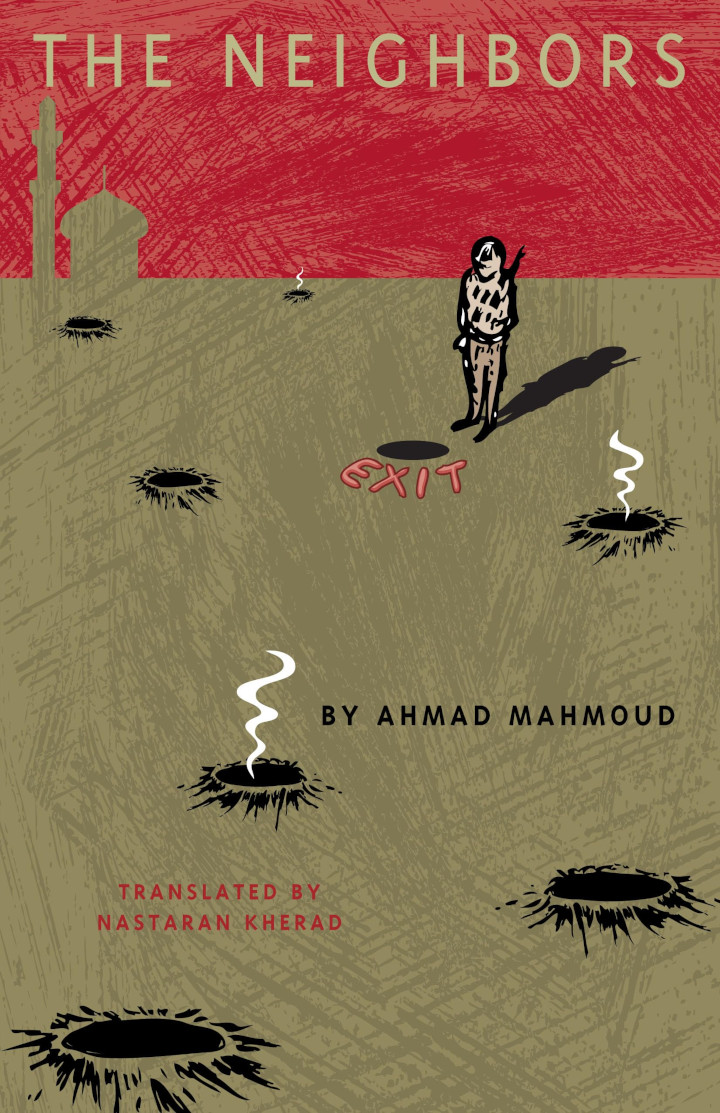ymphony of the Dead

Author: Abbas Maroufi
Genre: Psychological drama
Publication Year: 1989
Symphony of the Dead by Abbas Maroufi is a dark, haunting novel that explores themes of family dysfunction, personal despair, and societal decay in pre-revolutionary Iran. Often compared to works of Kafka and Faulkner, Maroufi’s novel employs a fragmented narrative structure and multiple perspectives to create a powerful, multi-layered story. Through its intense, lyrical prose and rich symbolism, the novel delves into the destructive forces of jealousy, repression, and fate, painting a bleak but compelling portrait of human suffering and resilience.
Genre
Symphony of the Dead is a psychological drama and family saga with elements of modernist and existentialist fiction. Its complex structure and dark themes give it a unique place in Iranian literature, aligning it with works of literary fiction that examine the darker sides of human nature and society.
Description
The novel centers on the dysfunctional Urkhani family, living in the fictional town of Ardavan. Told through the eyes of different family members, the story reveals the troubled past and personal torment of each sibling. At the heart of the narrative is Yousef, a fragile and misunderstood son, whose sensitivities clash with his family’s expectations. His life is overshadowed by his older brother, Aqa, whose controlling, tyrannical nature slowly unravels the family. Their tragic history unfolds against a backdrop of political and social tensions, reflecting the decay of both family and society.
Maroufi uses the structure of a symphony to craft his narrative, with each “movement” presenting a different perspective or moment in time. This innovative approach allows him to weave together the characters’ experiences, creating an atmosphere of suspense, melancholy, and dread that culminates in a powerful, heartbreaking finale.
Review
Symphony of the Dead is a deeply affecting, challenging novel that immerses readers in the psychological turmoil of its characters and the societal decay around them. Abbas Maroufi’s prose is darkly lyrical, capturing both the beauty and despair of his characters’ lives. His use of a non-linear, multi-perspective narrative adds to the novel’s intensity, creating a claustrophobic sense of foreboding that mirrors the characters’ inner conflicts.
One of the novel’s most striking elements is Maroufi’s ability to portray the family members with a depth and complexity that makes their suffering feel both inevitable and tragic. Each character, especially Yousef and Aqa, is vividly portrayed, with Maroufi skillfully navigating their internal worlds, revealing how past traumas and repressive social norms shape their choices and conflicts. Yousef, as the sensitive, artistic figure, stands in stark contrast to Aqa’s cold pragmatism, and their tragic relationship becomes a powerful exploration of sibling rivalry, jealousy, and repression.
Maroufi’s storytelling echoes both the psychological intensity of Faulkner and the existential dread of Kafka, combining vivid imagery and symbolic depth to portray the destructive forces at work in the characters’ lives. The symphonic structure of the novel is both ambitious and effective, with each “movement” adding to the overall emotional impact of the narrative. This approach may challenge some readers, but it also enriches the novel, allowing Maroufi to delve into the lives of his characters in a way that is both intimate and expansive.
At its core, Symphony of the Dead is an exploration of suffering and the human condition, offering readers a harrowing glimpse into the lives of people trapped by fate, family, and societal expectations. The novel serves as a powerful critique of both personal and societal decay, shedding light on the devastating effects of repression, jealousy, and despair. For readers interested in modernist literature and stories of psychological depth, Symphony of the Dead is a compelling, thought-provoking work that lingers long after the final page, cementing Abbas Maroufi’s reputation as one of Iran’s most talented and introspective authors.



